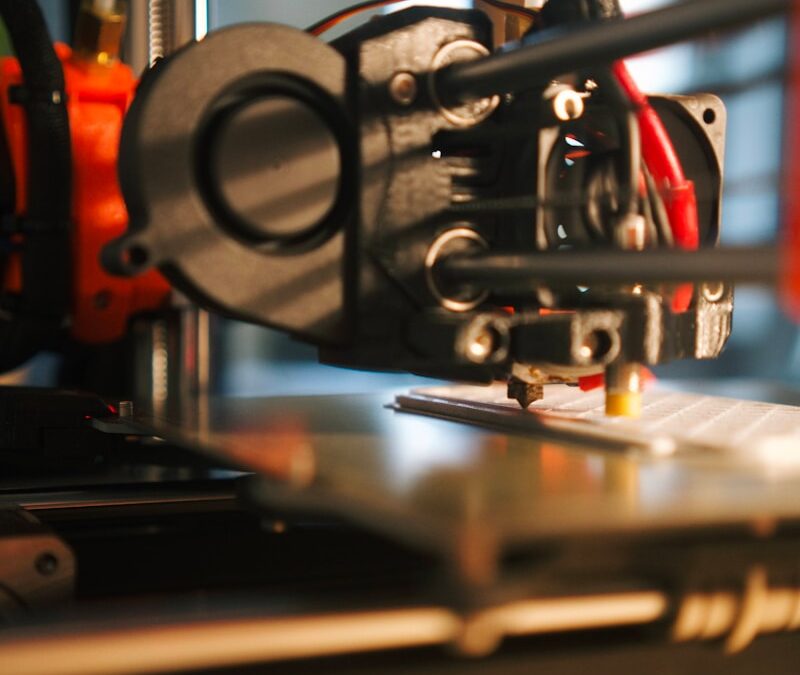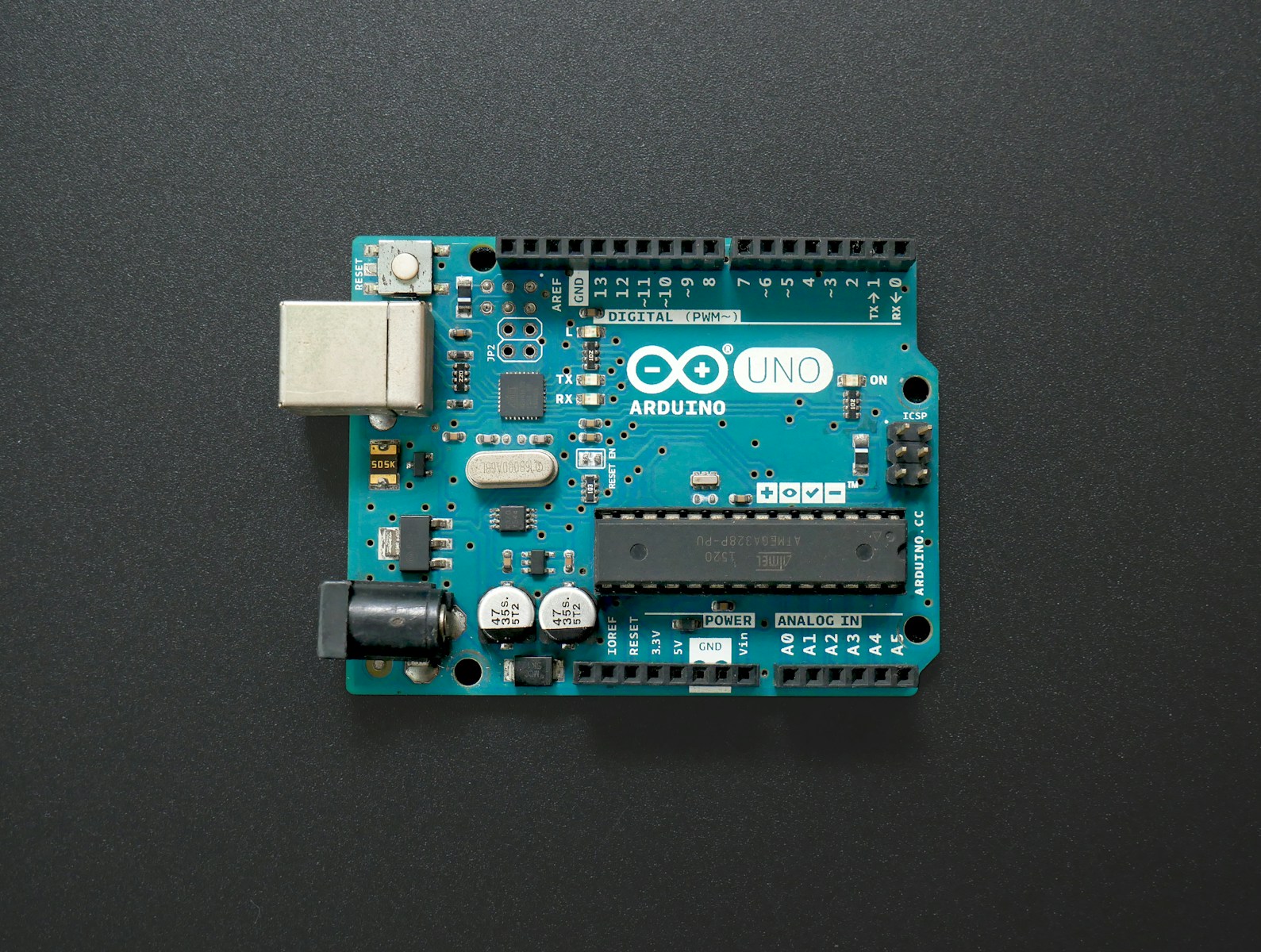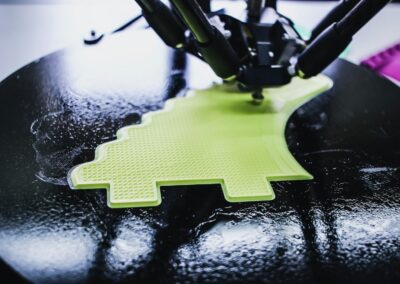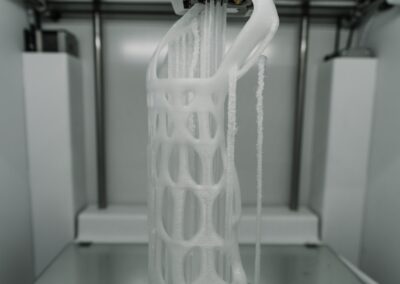Balancing Innovation and Responsibility in 3D Printing
The Rise of 3D Printing and Its Ethical Implications
The advent of 3D printing technologies has revolutionized the manufacturing landscape, offering unprecedented opportunities for innovation and customization. However, this rapid advancement also brings ethical challenges that must be addressed to prevent the misuse of such powerful tools. As 3D printing becomes more accessible and sophisticated, ensuring ethical practices in its application is crucial to safeguarding society from the production of harmful or illegal objects.
In regions like Saudi Arabia and the UAE, where technological innovation is driving economic growth and modernization, the responsible use of 3D printing is paramount. These countries are investing heavily in advanced manufacturing technologies to diversify their economies and reduce dependency on oil. Riyadh and Dubai, in particular, are emerging as hubs for technological innovation, making them ideal places to set high standards for ethical 3D printing practices.
One of the primary ethical concerns with 3D printing is the potential production of dangerous items, such as weapons or counterfeit goods. This risk necessitates stringent regulations and oversight to ensure that 3D printing technology is used for beneficial and legal purposes only. Implementing robust legal frameworks and monitoring systems can help mitigate these risks and promote the ethical use of 3D printing in various industries.
Promoting Ethical Practices Through Education and Awareness
Education and awareness are critical components in fostering ethical advancements in 3D printing. By educating users, developers, and policymakers about the potential risks and ethical considerations associated with 3D printing, society can create a more informed and responsible approach to this technology. This education should include training on the ethical implications of 3D printing, the legal landscape, and best practices for safe and responsible use.
In Dubai and Riyadh, educational institutions and professional organizations play a vital role in promoting ethical 3D printing practices. By integrating ethics into the curriculum of engineering and technology programs, these institutions can prepare the next generation of professionals to navigate the complexities of 3D printing responsibly. Additionally, industry conferences and workshops can serve as platforms for discussing ethical issues and sharing knowledge on best practices.
Awareness campaigns aimed at the general public can also contribute to ethical advancements in 3D printing. These campaigns can highlight the positive applications of 3D printing, such as medical innovations and sustainable manufacturing, while also educating the public about potential risks and how to identify and report unethical practices. By fostering a culture of responsibility and vigilance, society can better harness the benefits of 3D printing technology.
Regulatory Frameworks and International Collaboration
Developing comprehensive regulatory frameworks is essential for ensuring the ethical use of 3D printing technologies. These frameworks should address issues such as intellectual property rights, product safety, and the prevention of illegal activities. Governments in Saudi Arabia, the UAE, and other technologically advanced regions must work collaboratively with international bodies to establish and enforce these regulations.
International collaboration is particularly important given the global nature of 3D printing technology. By participating in international forums and agreements, countries can share best practices, align their regulatory approaches, and jointly address cross-border challenges. For instance, the World Economic Forum and other international organizations can facilitate dialogue and cooperation on the ethical use of 3D printing.
In addition to regulatory measures, industry standards and certifications can help ensure ethical practices in 3D printing. Certification programs can verify that companies and individuals adhere to ethical guidelines and best practices, providing an additional layer of oversight and accountability. Such standards can be particularly effective in regions like Riyadh and Dubai, where the rapid adoption of 3D printing technologies necessitates robust ethical safeguards.
Conclusion: Ensuring a Responsible Future for 3D Printing
As 3D printing technologies continue to advance, society must remain vigilant in ensuring their ethical use. By balancing innovation with responsibility, we can harness the transformative potential of 3D printing while preventing its misuse. In regions like Saudi Arabia and the UAE, where technological advancements are a key driver of economic growth, setting high standards for ethical 3D printing practices is crucial.
Through education, awareness, regulatory frameworks, and international collaboration, we can promote the ethical use of 3D printing technologies and safeguard society from potential harms. By fostering a culture of responsibility and vigilance, we can ensure that 3D printing remains a force for good, driving innovation and improving lives across the globe. As business executives, mid-level managers, and entrepreneurs, it is our collective responsibility to lead by example and champion ethical advancements in 3D printing.
#3DPrinting #EthicalTechnology #InnovationInManufacturing #SaudiArabia #UAE #Riyadh #Dubai #ArtificialIntelligence #Blockchain #TheMetaverse #ExecutiveCoachingServices #GenerativeAI #ModernTechnology #BusinessSuccess #LeadershipSkills #ProjectManagement































